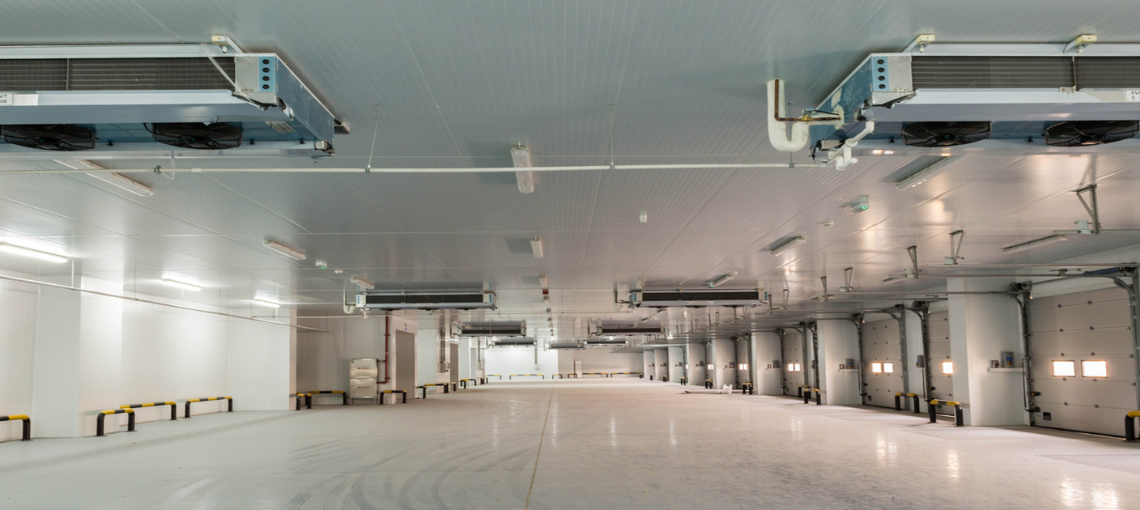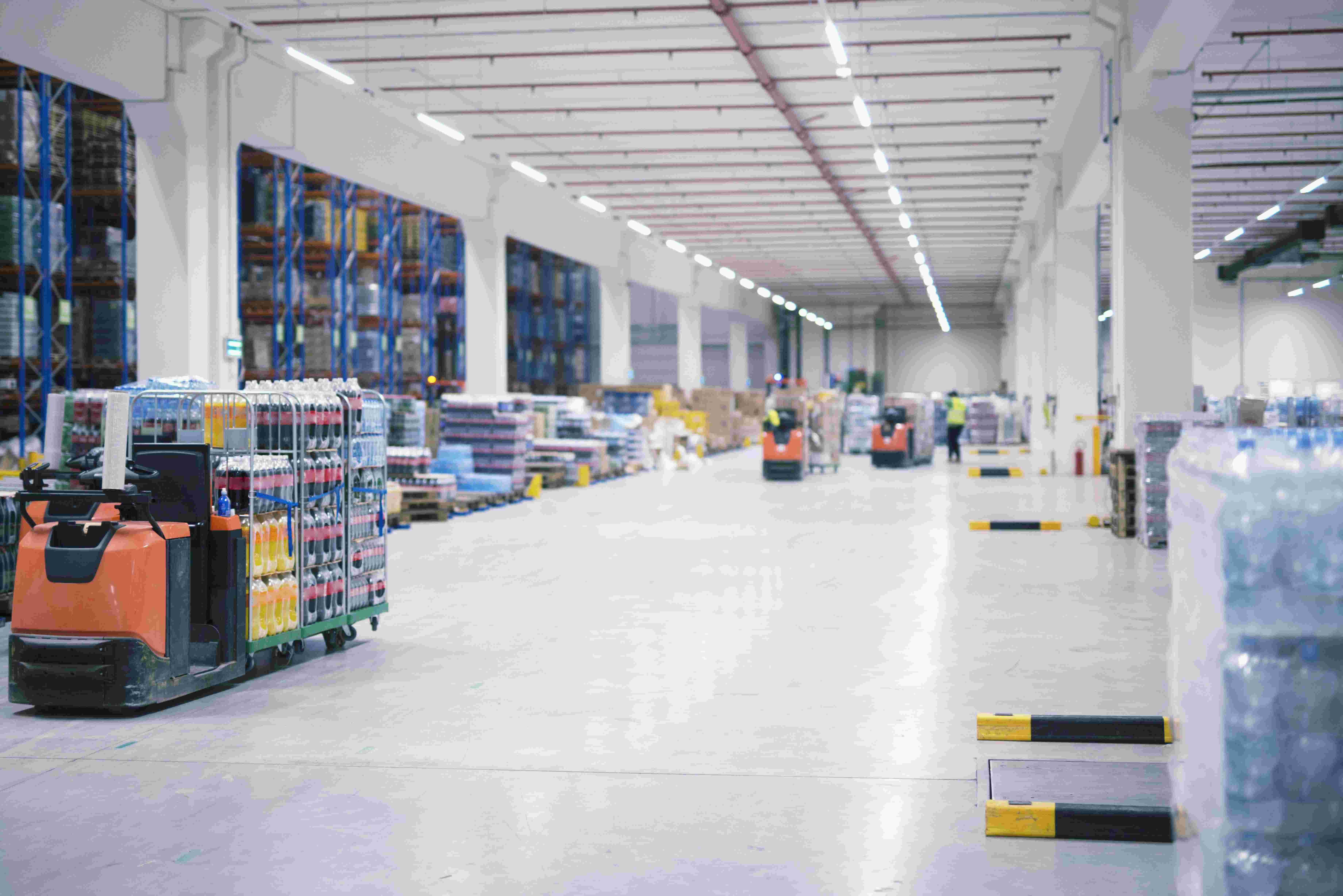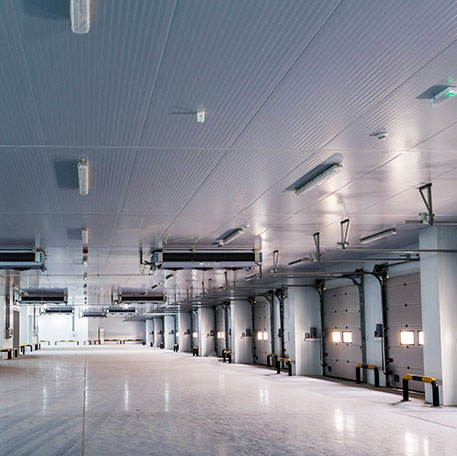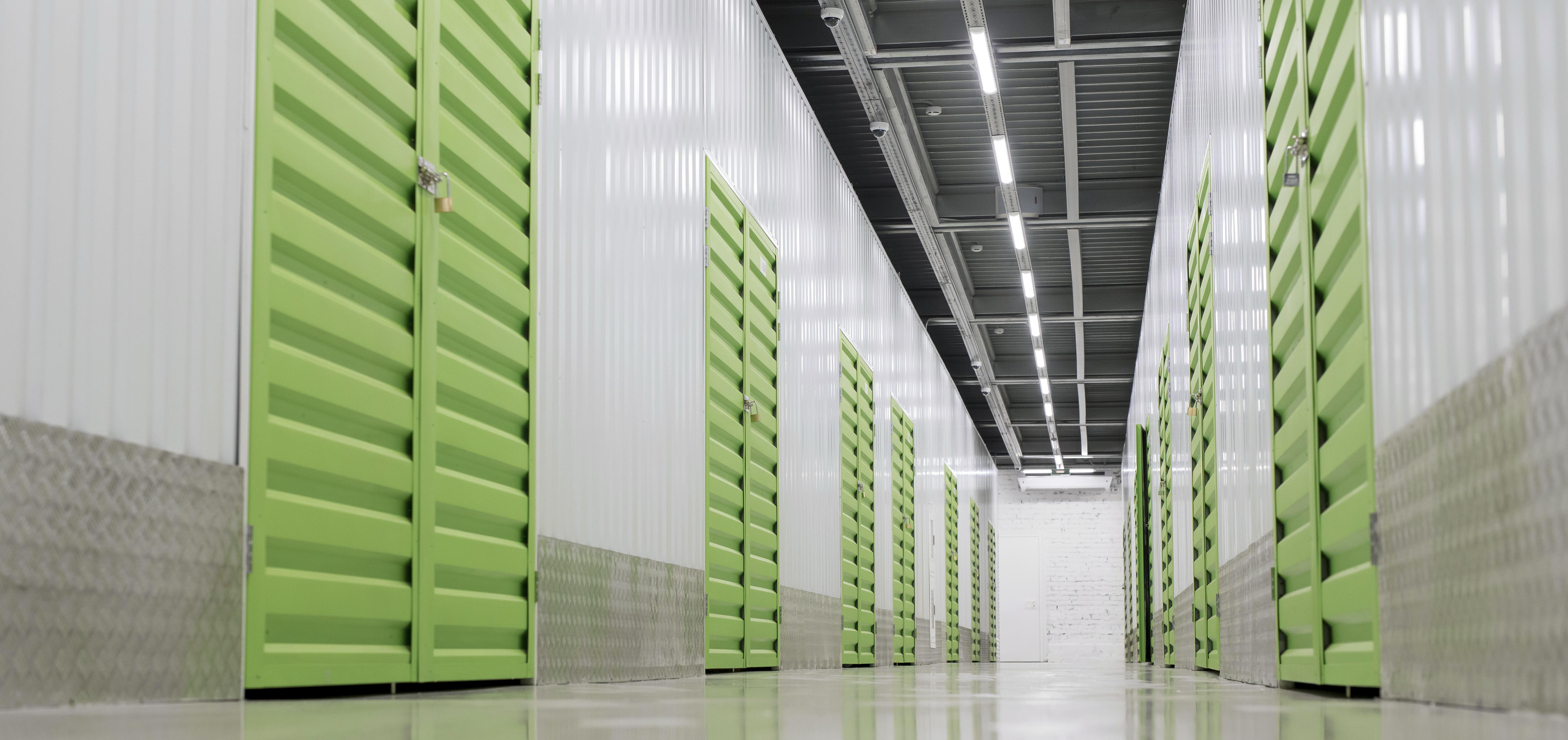Introduction
Cold Storage is basically a term used for the storage of perishable commodities (e.g. food, pharmaceuticals, and biomaterials) in a refrigerated or frozen environment. Cold Storage is critical to preserve the natural quality and safety from the point of slaughter or harvest through the distribution chain to the end-user.
Albeit, choosing the ideal cold storage facility necessitates careful considerations. In this blog, we will share with you a comprehensive guide to temperature-controlled warehouses and cold storage facilities.
Cold Storage Facilities Can be Used For a Range of Products.
-
Foods like fruits, vegetables, dairy, processed foods, frozen foods, meat and seafood
-
Nutritional supplements like perishable nutrient products
-
Flowers and plants
-
Biopharmaceuticals like medicines, vaccines, blood samples
-
Books and artwork like historical documents, paintings, and film canisters
-
Cosmetics & Perfumes
-
Chemicals like reagents and disinfectants
-
Specialized products like machinery & certain electronic components
Various Industries Rely on Cold Storage Facilities to Maintain The Quality and Safety of Their Products
-
Food and Beverage manufactures
-
Restaurants and food outlets
-
Supermarkets and food service
-
Importers and exporters
-
Frozen food producers
-
Agricultural producers
-
Pharmaceuticals and healthcare institutions
-
FMCG and Cosmetic companies
Cold storage facilities are designed to meet specific requirements for temperature regulation and storage capacity. Examples of temperature-controlled storage include
-
Cold Storage Warehouses
-
Blast freezers
-
Refrigerated containers
-
Walk-in Cold Stores / Cold Rooms
-
Bulk cold stores
-
Ultra-Low Temperature Cold Storage
-
Dedicated custom storage
-
Climate controlled storage
-
Food industries
Understanding the Distinct Types of Cold Storage FacilitiesIs Crucial for Making Informed Decisions About Storing Perishable Goods.
Cold Storage Warehouse
A cold storage warehouse is a large-scale temperature-controlled warehouse designed and engineered to store goods that require controlled temperatures. These warehouses typically maintain specific temperature ranges through a combination of tightly sealed insulated panels and HVAC cooling systems. They are equipped with temperature and relative humidity controllers, refrigeration control systems as well as ventilation systems to provide adequate storage conditions and maintain specific temperature ranges that help to increase the life of perishable items. Cold storage warehouses are essential for wholesale distributors and large manufacturers.
Cold Storage Warehouses can be classified as:
- Refrigerated Warehouses / Chilled cold storage Warehouses
- Frozen cold storage
- Ultra-low Temperature cold storage
Refrigerated Warehouses:
Refrigerated cold storage facilities also referred to as refrigerated warehouses or chill stores are designed to conserve the integrity and shelf life of products that don’t need to be frozen. These temperature-controlled warehouses are designed to store fresh produce, dairy products, and chilled meat and typically maintain temperatures between +2 to +8 degrees Celsius.
Frozen Cold Storage Warehouses:
Operate in sub-zero temperatures, commonly between -18 to -25 degrees Celsius. These facilities are designed to store frozen foods, such as meats, seafood, and frozen desserts that must be kept at low temperatures to prevent bacterial growth and maintain product integrity.
Ultra-Low Temperature (ULT) Cold Storage:
These warehouses maintain extremely low temperatures, with a temperature range of -40 degrees to as low as -80 degrees Celsius. They are purpose-built for storing certain pharmaceuticals and to preserve biological samples.
Cold Storage Warehouse Options
Private Cold Warehouses: These temperature-controlled warehouses are owned and operated by large food producers or retailers that use or produce the goods stored in the facility. These are often connected to the main manufacturing facility or located near the company’s manufacturing facility for convenience and efficiency.
Public or Shared Cold Warehouses: These cold storage facilities are usually owned and managed by Third-party (3PL) logistics companies that provide cold storage services to multiple clients. Public cold storage warehouses receive, store, and ship the items on behalf of various companies.
Refrigerated Containers
Refrigerated containers offer a flexible and mobile solution to carry frozen types of commodities. These portable units can be attached to standard shipping containers, converting them into temperature-controlled storage units, and can be shipped globally. Their versatility makes them an asset in the cold supply chain.
Reefer Containers
These specialized temperature-controlled shipping containers are ideal for the transportation of temperature sensitive and perishable cargo. These containers are well-insulated to prevent heat transfer from the outside environment and are equipped with built-in refrigeration machinery that allows for precise temperature control.
Blast Freezers
Also known as “blast chillers,” “shock freezers,” or “flash freezers,” these blast freezers are very cold freezers where the core temperature of products is rapidly lowered before placing them in longer-term storage. Rapid freezing causes the formation of tiny crystals, which do minor damage and preserve food at a higher quality. This fast-freezing process is essential for preserving the quality of temperature-controlled products like seafood and prepared foods.
Walk-in Cold Stores
Cold rooms and walk-in cold stores are modular cold storages that can be customized and are commonly utilised for multiple applications in the pharmaceutical, cosmetic, food and beverages, dairy, and other industries for storage of products at low temperatures. In addition, Walk-in freezers are temperature-controlled rooms or chambers used for the storage of products at the far lower temperature range of -18C to -22 degrees Celsius.
Cold storage warehouses can be diversified with temperature-controlled cold room units to cater to a wide variety of temperature requests for perishable, adhesive, and consumables.
Controlled Atmosphere (CA) Cold Stores
These cold stores are designed for temperature specific storage of food, seasonal fruits, and vegetables. It is a system in which fresh, perishable products are stored under environmental conditions that add to their shelf life after the produce is harvested. This storage process is a non-chemical technology that uses low oxygen levels and high carbon dioxide levels in the storage atmosphere and refrigeration. Sometimes it also involves the removal of ethylene and the addition of carbon monoxide. Since this type of cold storage is capital intensive and expensive to operate and maintain, it is more appropriate for those foods befitting long-term storage, such as kiwis, apples, and pears.
Cold Storage Considerations
Essential Equipment
A well-designed and efficiently operated cold storage warehouse has several key features that make it a critical component of the supply chain for temperature-sensitive products.
Essential equipment for cold storage warehouse installation includes high-quality refrigeration systems, insulated panels, temperature monitoring controls, and material handling equipment designed for low-temperature environments.
Efficient Supply Chain
You need a cold storage facility designed for easy connection with transportation and order fulfilment processes—from the producer to the end consumer. For example:
-
Transportation: Proximity to major roads, ports and airports
-
Inventory Management: Real-time tracking and automated restocking system
-
Reliable & Energy-Saving Systems: Sustainable design elements of the temperature-controlled warehouse to reduce energy consumption.
-
Technology and Innovation: Continuous temperature and humidity monitoring systems.
-
Regulatory Compliance: Cold storage facilities reputation and credentials —food safety certifications, compliance with industry standards and government regulations.
-
Value-added services: Palletizing, Labeling, Shrinking, Wrapping, Packaging, Etc.
-
Storage capacity of the cold storage facility.
Tips for Working Safely in Cold Storage Facilities
-
Train workers to recognize the signs of cold stress and provide first aid
-
Provide engineering controls such as heaters that workers can use to warm up
-
Provide breaks and refreshments like warm beverages
-
Wear proper clothing, such as gloves, insulated and waterproof boots, a hat and hood, and knit masks to cover the face and mouth.
-
Wear boots that are designed for cold weather and allow the feet to breathe. The boots should be waterproof or resistant and have an anti-slip sole.
-
Implement Automated Solutions in Cold Storages – automated technology solutions, such as RFID scanners, voice picking, and AS/RS systems, can also help reduce employee exposure while improving productivity.
-
Take Frequent Breaks – A 10-minute break every hour is one rule of thumb to give the body resting time. Drinking warm, sweetened fluids can help employees cope with the cold.
-
Use Cold Storage-Rated Equipment – Cold storage-rated equipment has specially-guarded components that protect the electrical system from damage due to condensation. For instance, cold storage forklifts have features such as stainless steel, fully-sealed components, cold weather oil, anti-slip platforms, and heated batteries.
-
Use cold storage equipment with oversized buttons that allow manipulation by gloved hands
Cold storage facilities are vital in the supply chain, preserving the integrity of temperature-sensitive products and facilitating global commerce. Cold storage warehouses can be a good investment, particularly with the increasing demand for temperature-controlled logistics solutions across various industries. However, it’s crucial to consider factors like location, operational costs, and market growth. If you want to partner with a cold storage warehouse manufacturer and supplier or to learn more about cold storage facilities, send us an email to sales@tsscgroup.com. We look forward to assisting you with all your cold storage needs.
Read more: How to Select the Right Cold Storage Warehouse for Your Business?



